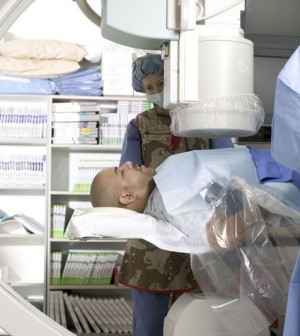- 10 Strategies to Overcome Insomnia
- Could Artificial Sweeteners Be Aging the Brain Faster?
- Techniques for Soothing Your Nervous System
- Does the Water in Your House Smell Funny? Here’s Why
- Can a Daily Dose of Apple Cider Vinegar Actually Aid Weight Loss?
- 6 Health Beverages That Can Actually Spike Your Blood Sugar
- Treatment Options for Social Anxiety Disorder
- Understanding the Connection Between Anxiety and Depression
- How Daily Prunes Can Influence Cholesterol and Inflammation
- When to Take B12 for Better Absorption and Energy
Secondhand Smoke Linked to Behavior Issues in Kids


Early exposure to secondhand smoke may lead to behavioral problems in children, a new study suggests.
Researchers analyzed data from more than 5,200 primary school students in France and found that those exposed to secondhand smoke while in the womb and/or at a young age were at higher risk for behavioral problems, particularly emotional and conduct disorders.
The association was strongest among children exposed to secondhand smoke both during pregnancy and after birth. However, because this was an observational study, the authors can’t say for sure that secondhand smoke caused the behavioral problems.
The study was published online recently in the journal PLoS One.
“Our data indicate that passive smoking, in addition to the well-known effects on health, should also be avoided because of the behavioral disorders it may cause in children,” study leader Isabella Annesi-Maesano, research director at the French Institute of Health and Medical Research in Paris, said in an institute news release.
The results support animal research findings that nicotine in secondhand smoke may have a neurotoxic effect on the brain. Those studies found that during pregnancy, exposure to nicotine smoke causes structural changes in the fetal brain, and that exposure to tobacco smoke during the first months of life causes a protein imbalance that affects the growth of neurons, the study authors said.
More information
The U.S. Centers for Disease Control and Prevention has more about secondhand smoke.
Source: HealthDay
Copyright © 2026 HealthDay. All rights reserved.










